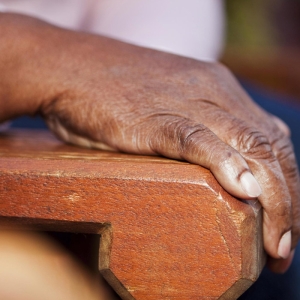HHS must act boldly to help African-Americans fight Alzheimer’s disease
March 21, 2019 / by Karen D. Lincoln- Opinion
Former model and restaurateur B. Smith is a likely representation of life with Alzheimer’s disease. Beyond the gasps over Smith’s home life — she lives with her husband and his live-in girlfriend — her situation points to real-world challenges faced by black families caring for loved ones who have this life-altering condition.
Alzheimer’s is a public health crisis for which Congress has thankfully put aside its differences long enough to pass the Building Our Largest Dementia Infrastructure for Alzheimer’s (BOLD) Act. Now the question is whether the money and resources directed toward African-Americans, a group disproportionately affected by Alzheimer’s, is bold enough.
The act authorizes $100 million over five years and directs the Centers for Disease Control and Prevention to create a public health infrastructure to combat Alzheimer’s disease. This funding will go a long way to increase early detection and diagnosis, reduce risk, prevent avoidable hospitalizations, assist caregivers, and support care planning for people living with the disease.
As a caregiver of a parent with dementia, an associate professor who provides Alzheimer’s education to underserved communities, and an advocate for increased support for those living with Alzheimer’s, their families, and caregivers, I wholeheartedly support the idea of a nationwide Alzheimer’s public health infrastructure. I also know there is reason to be concerned about whether this funding makes it into every community that needs it.
Read more on STAT.
To reference the work of our faculty online, we ask that you directly quote their work where possible and attribute it to "FACULTY NAME, a professor in the USC Suzanne Dworak-Peck School of Social Work” (LINK: https://dworakpeck.usc.edu)
